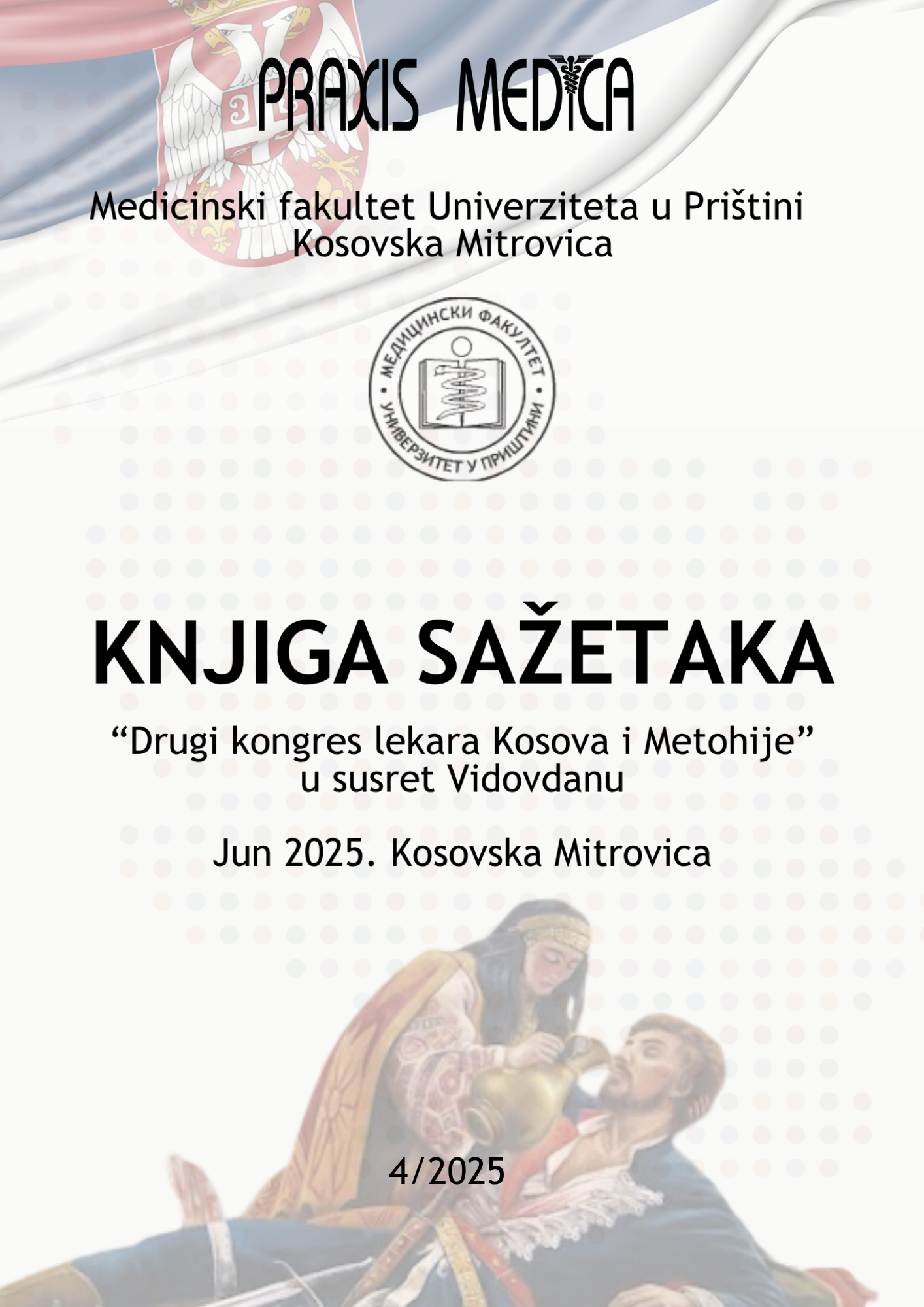
More articles from Volume 34, Issue 2, 2006
EHOCARDIOGRAPHIC CHARACTERISTICS OF LEFT VENTRICLE IN NON-Q ACUTE MYOCARDIAL INFARCTION
VITAMIN C CONCENTRATIONS IN SERUM BEETWEN PATIENTS SUFFERING FROM DIFFERENT FORMS OF NON-SPECIFIC OSTEOMYELITIS
QUALITY QUALITY AND EFFICACY AND EFFICACY OF A TELECOLPOSCOPY TELECOLPOSCOPY PROGRAMME PROGRAMME
RECURENT ECURENT CHILDREN HEADACHES IN CHILDREN HEADACHES IN VOJVODINA
PREGNANCY TERMINATION AT PRENATALLY DIAGNOSTIFIED FETAL ANOMALY: TWO PROTOCOL COMPARATION
Citations

0
SIGNIFICATION OF MAGNESIUM IN THERAPY OF CARDIOVASCULAR DISEASES
Health centre Kosovska Mitrovica Kosovo*
Institute of Pharmacology and toxicologhy, Faculty of Medicine, University of Priština - Kosovska Mitrovica , Mitrovica , Kosovo
Institute of Physiology, Faculty of Medicine, University of Priština - Kosovska Mitrovica , Mitrovica , Kosovo
Published: 01.12.2006.
Volume 34, Issue 2 (2006)
pp. 93-106;
Abstract
Cardiovascular diseases are one of the most significant social-medical problems. Having on mind their importance, the risk factors have been defined. Numerous clinical and epidemiological studies showed that deficit of magnesium in the human organism has a certain contribution in etiology, pathogenesis and evolution of cardiovascular diseases. RASKO, Rakovica's study of cardiovascular diseases, found out that these diseases are more frequent at the locations where
soft water with decreased content of magnesium is being used as drinking water. Magnesium is an integral part of about 300 enzyme systems in which catalyst's role have adenositriphospathase as Mg-ATP, a part of NaKATP-ase, exogenous and endogenous pumps for calcium, etc. A normal plasmatic concentration of magnesium is 0,8-1 mmol/l. Plasmatic level of magnesium is not directly correlated with actually content in an organism since 33% of plasmatic magnesium is connected with plasma's proteins and that's why hypoproteinemia can cause a false hypomagnesemia. The normal values of magnesemia don't exclude deficit of magnesium in an organism since PTH and calcitonin mobilize magnesium from the bones. Hypomegnesemia is caused by improper and irrational nutrition, hormone disturbances, and different conditions and diseases of an organism. Magnesium has vasodiletatoric, antianginosic, hypolipemic, antiagregatic effects. Mechanism of magnesium's effect is based on its physiological role in an organism, i.e. on correction of hypomagnesemia. In preventive and therapeutic purposes magnesium's compounds are used peroraly and parenteraly. With parenteral use the plasmatic concentrations of more than physiological 2,5-7,5 mEq/l can be attained in which case somnolentia can be appeared but not a coma nor depression of breathing. In prevention and therapy of cardiovascular diseases magnesium has a significant place in the largest number of cases as an adjuvant drug
Keywords
References
Citation
Copyright

This work is licensed under a Creative Commons Attribution-NonCommercial-ShareAlike 4.0 International License.
Article metrics
The statements, opinions and data contained in the journal are solely those of the individual authors and contributors and not of the publisher and the editor(s). We stay neutral with regard to jurisdictional claims in published maps and institutional affiliations.






